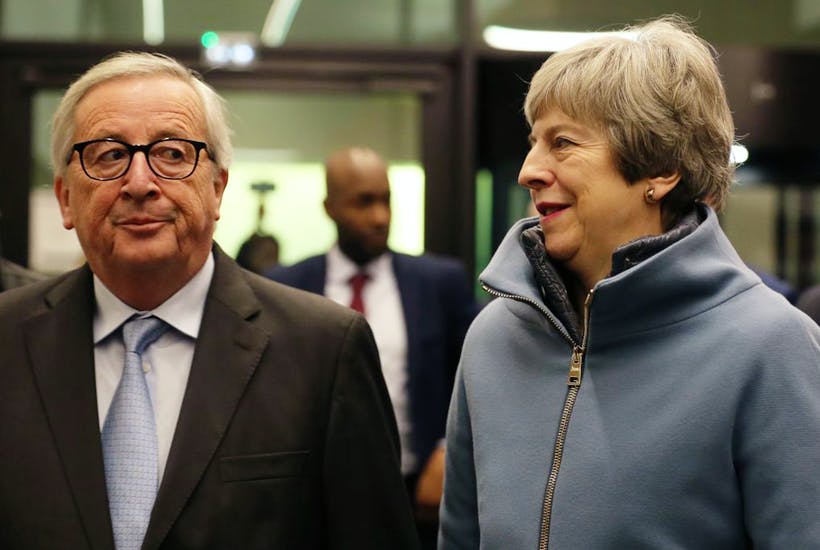In recent weeks, two big beasts in the European political arena pushed forward their respective ideas for the future of the European Union. France’s president Emmanuel Macron repeated his dream of a big EU. And the leader of Germany’s Christian Democratic Union, Annegret Kramp-Karrenbauer, responded in kind with a vision of an EU that is larger than it is now but smaller than the EU ‘à la Macron’. In both visions, the reality of Brexit was conspicuously absent.
The decision to ignore Brexit in these visions of the future EU is easily understood if one gets the updated ‘deal’ that Theresa May struck with the EU overnight. ‘This is it’, declared Jean-Claude Juncker. There wouldn’t be a third chance for the UK. But as ever the phrase ‘nothing has changed’ remains true. It’s not difficult at all to shoot a number of holes in the ‘legally binding assurances’ that the EU has offered. So it’s no surprise that the Attorney-General Geoffrey Cox has shot down May’s latest deal.
Admittedly, Britain did get something in the way of an assurance that it will not be locked in the backstop forever. So the UK will be able to challenge the EU legally if it attempted to drag on negotiations on the future relationship for too long. But the flaw in this is that nobody made the effort to give clarification on the most important question: ‘How long is too long?’ How many months or years need to pass before the UK has any chance to win that international legal case? I bet that the EU officials and the Irish government are acutely aware of this problem for the UK but are very happy to leave it out of the conversation. This would explain the easy attitude of the Irish to this last-minute add-on to the withdrawal agreement.
For the EU, the uncertainty on this question – ‘How long is too long?’ – is of critical importance. The general opinion is that if the EU can drag on just long enough, it will be likely that the UK comes back in the fold before a real Brexit actually happens. The hope in Brussels is that the climate in Britain will change, meaning that voters decide against leaving the EU.
The idea here is that after the European Parliament elections in May, a new majority will be able to push through a bigger Franco-German EU. This will be somewhere in the middle between the visions proposed by Kramp-Karrenbauer and Macron. Already Manfred Weber, the leader of the European People’s Party – the main center-right group in the European Parliament – and likely future commission president, declared that the EPP will work together with Macron. Together, the EPP, European social democrats and liberals will push for more integration and take the UK with it down that road, whether it likes it or not. Thanks to the withdrawal agreement, the UK will have to adopt new EU legislation. This will only hand over more power to Brussels. Much of this new legislation is expected in the next two-and-a-half years, as this is the first half of the EP legislative cycle.
Meanwhile, the UK will be stuck, left frustrated by the never-ending Brexit process. Politicians in Britain will seethe again and again over their powerlessness as it has to nod through EU legislation that comes its way. The UK will discover the hard way that unilateral interpretations of treaties are meaningless and that leaving out ‘how long is too long’ has real legal consequences.
The big bet of the EU is that this will culminate in Britain applying again to rejoin even before it actually properly leaves the EU legal framework. If so, the UK – with its tail between its legs – will prove less of a troublemaker then before as it will be more integrated in the EU legal framework than is currently the case. Moreover the UK is likely to lose all its current special rebates and opt-outs with the EU. It’s no wonder that the EU is desperate for MPs to back the deal – and no wonder, too, why those same MPs are nervous about doing just that.
This article was originally published on The Spectator’s UK website.

























